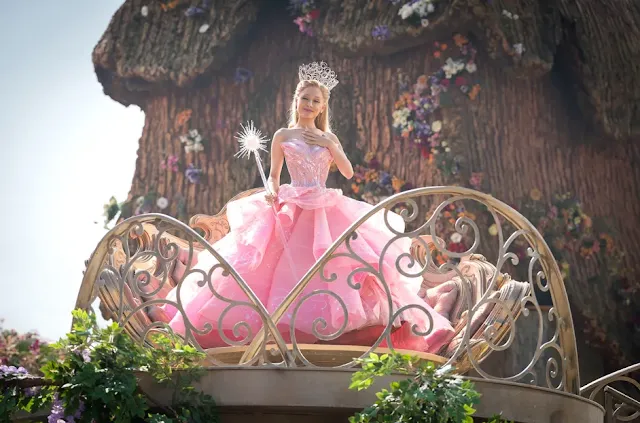Learn about EPs in music—what they are, their purpose, and how they differ from albums. Discover the benefits of releasing an EP for emerging artists.
What is an EP in Music? A Comprehensive Guide for Emerging Artists
If you're a musician or aspiring artist, you've probably come across the term "EP" when discussing music releases. But what exactly is an EP, and how does it fit into the music industry? An EP, or Extended Play, is a short music release that falls between a single and a full album. While it may not have the full-length run time of an album, an EP provides artists with a valuable opportunity to showcase their work and gain exposure without the commitment of a full project.
In this guide, we’ll dive deep into the concept of an EP, how it differs from other music formats, and why it’s a popular choice for both emerging and established artists.
Understanding EPs: Definition and Meaning
An EP, or Extended Play, is a music release that typically contains more than one song but fewer than a full album. While a single usually includes one or two tracks, an EP generally contains between three to six songs, lasting anywhere from 15 to 30 minutes.
The EP format gives artists a way to share their music without the time commitment or costs associated with a full-length album. It's a flexible option that allows musicians to experiment with different sounds, showcase new material, or bridge the gap between full album releases.
EP vs. Album: Key Differences You Should Know
One of the most common questions regarding EPs is how they differ from albums. Here are the key differences between the two:
- Length: A full album typically contains 10 or more tracks and has a run time of 30 to 80 minutes. In contrast, an EP is shorter, usually containing 3 to 6 tracks and lasting 15 to 30 minutes.
- Purpose: Albums are often seen as a major milestone in an artist’s career, serving as a comprehensive collection of songs. EPs, on the other hand, are often released to test new material, generate buzz between album releases, or give fans a taste of an artist's evolving sound.
- Cost and Production: Producing an album requires significant time, money, and resources. An EP, with fewer tracks, allows artists to release new music more frequently without the same level of investment.
Why Artists Choose to Release an EP
Many emerging artists opt to release an EP for several reasons, each aligning with their specific goals and career stages. Here are a few key benefits:
Cost-Effective: Recording a full album can be expensive and time-consuming. EPs are a more affordable way for artists to release new music without the large investment needed for a full-length project.
Building Momentum: An EP can serve as a great way to build momentum and generate excitement before a major album release. By releasing an EP, artists can keep their audience engaged and continue to grow their fanbase.
Experimenting with Sound: For newer artists or those evolving their style, an EP provides a chance to experiment with different sounds or genres. It’s an opportunity to test how your audience reacts to new material without the pressure of releasing a full album.
Increased Exposure: While an album might take longer to promote and generate attention, an EP can be released more frequently, allowing for a more constant presence in the music industry. This helps increase visibility and keep fans engaged.
What Does "EP" Stand For?
The term "EP" stands for "Extended Play." The "extended" part comes from the fact that it’s longer than a single, but shorter than a full-length album. Historically, EPs were made for 7-inch vinyl records, which could hold around 4-6 tracks. While technology has advanced, the format has remained popular for its ideal length and flexibility.
The Benefits of Releasing an EP Instead of a Full Album
Releasing an EP offers several advantages, especially for newer or independent artists. Here’s why it could be the right choice for your next release:
- Faster Production Time: EPs can be created and released much faster than albums. This allows artists to put out fresh content regularly, which is crucial in today’s fast-paced music industry.
- Increased Fan Engagement: Since EPs are shorter and less time-consuming to listen to, they are easier for fans to consume in one sitting. This encourages repeat listening, increasing overall engagement.
- More Opportunities for Promotion: With fewer songs to focus on, EPs can allow for more targeted promotion and highlight key tracks that could potentially go viral or gain significant attention.
How EPs Can Help Build Your Audience
For emerging artists, an EP is an excellent way to introduce yourself to a wider audience. Releasing an EP can:
- Introduce New Listeners to Your Work: An EP provides enough material to capture the attention of new listeners without overwhelming them with a full album. It’s a perfect introductory package that can showcase your range and style.
- Create Buzz for Future Projects: By releasing an EP, you can build anticipation for your next album or major project. This gives you more time to refine your sound while still staying relevant in the music scene.
Conclusion
An EP is a valuable tool for musicians looking to release new material while testing out different sounds or building their fanbase. With its ideal length and low production cost, an EP offers a flexible and effective way to share music without the commitment of a full album. Whether you're a new artist trying to make your mark or an established musician experimenting with new ideas, an EP is a great way to expand your reach and keep your audience engaged.












